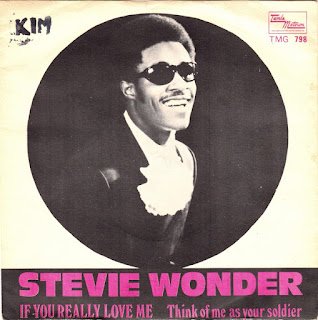Stevie played piano, drums and Moog bass synthesizer on this amazing track, and legendary Motown house band the Funk Brothers provided the rest of the instrumentation. It’s superbly arranged–boasting majestic horns, bustling bass and terrific piano parts. The song opens with the exuberant chorus, and then the mood and style abruptly shift on the jazzy, sensual verse section. The music is stripped down to just the piano, bass and Stevie’s vocals in this section, which gives it a really intimate feel. Here, he unleashes an impassioned vocal performance that completely catches you off-guard with its emotional power. It feels as though you're eavesdropping on someone’s most personal and intimate thoughts. This unique and unexpected section showed that Stevie was starting to take more risks in the studio and becoming a much more daring and innovative artist. Syreeta also shines on this track. Her sweet, soothing background vocals nicely complement Stevie’s and significantly help elevate the gorgeous chorus.
“If You Really Love Me” performed well on the charts, peaking at #4 on Billboard’s R&B singles chart, #8 on Billboard’s Hot 100, #4 on Billboard’s Easy Listening chart and #10 on Billboard’s Adult Contemporary singles chart. And it climbed to #20 on the UK singles chart. It was a single from Stevie’s self-produced thirteenth studio album Where I’m Coming From, which was released on April 12, 1971. All of the tracks on this collection were co-written by Stevie and Syreeta. It was his first album to contain all original songs that he had a hand in writing. The album is considered a transitional work as it’s much more experimental than Stevie’s previous efforts and was a significant departure from Motown’s typical sound. And he even took on important social issues on the album, such as “Do Yourself a Favor” and “I Wanna Talk To You.” This ambitious but somewhat uneven collection signaled what was to come in Stevie’s celebrated “classic period,” which would kick off with his next album Music of My Mind.

